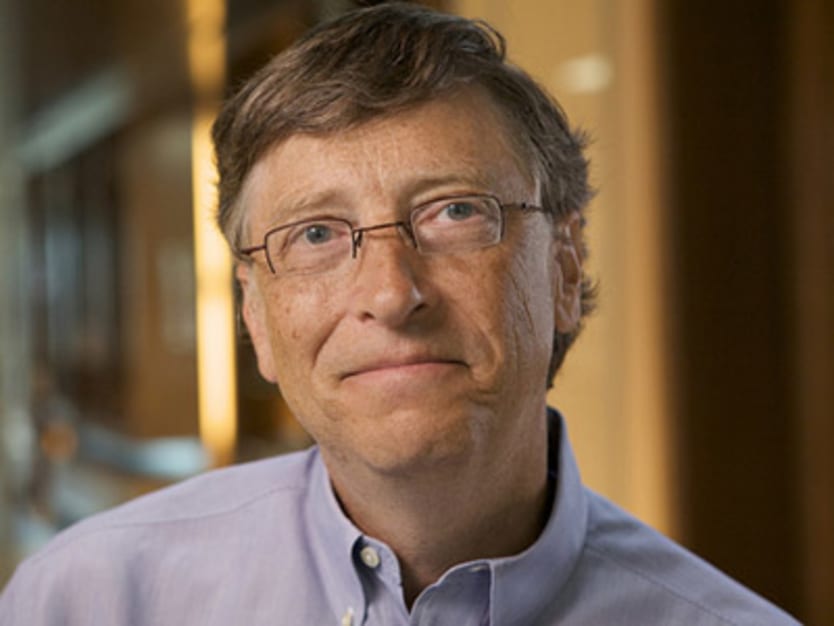
Bill Gates is an known optimist on foreign aid.
In his annual letter for the Bill & Melinda Gates Foundation, the billionaire philanthropist didn’t shy away from communicating how development assistance has helped improved lives in sub-Saharan Africa, cut down polio or galvanized the economies of former recipient nations like South Korea, now an emerging donor.
This optimism is evident in his prediction that there will be “almost no poor [low-income] countries left in the world” by 2035, except for those that could be held back by war, politics or geography.
But the questions he raised in his letter about how the development community can make aid work better and how donors can deal with corruption offer more interesting food for thought:
1. Are the recipient countries in charge of figuring out where health clinics should be built and training the workers?
In 2013, an aid official from the U.N. Office for Project Services shared with Devex how important it is to work with governments, and listen to their knowledge when it comes for instance to identifying where best to built roads without disrupting elephant migration, or opening up areas for illegal loggers to exploit. Several donors are moving toward aligning its aid with a recipient government’s priorities, but it’s hard to tell if the idea of consulting governments is already happening or it’s more an exception to the rule.
2. Are donors helping local teams build up the expertise they need to put the Western experts out of business?
Going local is a buzzword for the aid community nowadays. But while there’s a real push from donors and aid organizations to “go local,” there remain a lot of questions on how best to proceed, and if donors are doing enough in building local capacity.
In a recent interview with John Norris, executive director of the sustainable security and peace building initiative at the Center for American Progress, told Devex Director of Global Advisory and Analysis Pete Troilo that donors are right to assess that some portion of their aid will be “misspent,” but he argued that spending extra time to build the capacity of local actors will save more money over time.
“It’s hard for me to believe that we can’t find capable local actors to work with for more than 10 percent of the aid portfolio,” Norris said about USAID’s spending on contractors. “We spend a very large chunk of money on overhead inside the beltway flying people back and forth, higher salary structures than we would see with our local partners, and that’s real money and that is a real difference.”
3. Are the best performers sharing the lessons they’ve learned so other countries can follow suit?
Many in the aid community are talking about following the example of South Korea, a former aid recipient now turned emerging donor, or of India being polio-free. But are their paths to success communicated well enough, such as how they did it and what steps they took?
4. Suppose small-scale corruption amounts to a 2 percent tax on the cost of saving a life. We should try to reduce that. But if we can’t, should we stop trying to save lives?
Many recipient governments have been withheld aid over corruption allegations, like Malawi after the Cashgate scandal or Uganda when aid fund misallocations were unearthed by the country’s auditor-general.
Gates says in his letter: “One of the most common stories about aid is that some of it gets wasted on corruption. It is true that when health aid is stolen or wasted, it costs lives. We need to root out fraud and squeeze more out of every dollar … But we should also remember the relative size of the problem. Small-scale corruption, such as a government official who puts in for phony travel expenses, is an inefficiency that amounts to a tax on aid. While we should try to reduce it, there’s no way to eliminate it, any more than we could eliminate waste from every government program — or from every business, for that matter.”
True, freezing aid or pulling out of a country can have devastating effects for the most vulnerable, but perhaps it’s also worth exploring how to distinguish small- from large-scale corruption, and — if donors decide to continue their support — how can they ensure that the rest of the remaining aid money won’t suffer the same fate.
Read more development aid news online, and subscribe to The Development Newswire to receive top international development headlines from the world’s leading donors, news sources and opinion leaders — emailed to you FREE every business day.








